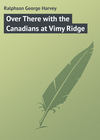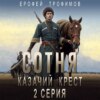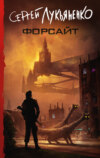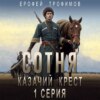Читать книгу: «Over There with the Canadians at Vimy Ridge», страница 6
CHAPTER XIX
LAST PREPARATIONS
The next move in Irving's program of preparation for spy work in Germany had to do with the tattooing of an altered copy of the cubist art message on his arm. The alterations were made by the cryptologist who had deciphered the original message. He made the changes after consulting with intelligence officials, who prepared a system of dots and dashes that ostensibly conveyed valuable information. This "information," however, was not only misleading, but it was of such character that the deception could hardly be discovered before the lapse of months and possibly a year or more.
By the time the spy-student had "completed his course of study" the material, instruments, and artist were ready for the pictorial operation. The instruments had been supplied by a surgeon, the artist had been discovered after a search by telephone communication with the various official headquarters of the regiment, and the material, some pure aniline dye, had been found in a moving laboratory, or automobile chemical outfit, maintained for surgical, sanitation, pure food, and pure water purposes for the army.
The artist, aided by a surgeon, and the dye and some sharp-pointed needles, did the work. It was a long and tedious task, and many rests were required for the users of the dye-dipped needles in order to keep their nerves steady and their judgment sure in the delicate workmanship. After it was finished, the boy compared it with the salt-preserved original, and decided that the result could hardly have been more satisfactory for the desired purpose.
Then Irving had another session with Col. Evans, who gave him his final instructions.
"I haven't given you much of an idea yet what we want you to find out for us at Berlin, or wherever you can get the information," said the commander of the regiment. "We know, of course, that there is an extensive enemy spy organization in both Canada and the United States, and while we are able to get a few of those fellows now and then, still they're pretty smart as a rule, and we feel that we have only scratched the surface. We want their names, or the name of every leader of consequence among them. That's what we're sending you into Germany for. You must realize, therefore, that the mission on which you are being sent is one of no small consequence. The highest officers in the army have been acquainted with the plan and not only concurred in it, but offered suggestions for its improvement and perfection.
"You have learned from Hessenburg what you are to do when you land on German soil. You will probably be taken to Berlin or some important German military point, and there your message will be read. You will be a hero in the minds of the highest commanders and will undoubtedly be granted any favor you ask. My suggestion is that you ask to be assigned for study to qualify you for the most confidential and important work in the enemy secret service. Tell them you wish to return to America as a leader in the work and call their attention to the fact that, as you have become pretty thoroughly Americanized, or Canadianized, and lost most of the foreign appearance and accent of your father, you can pass successfully as a loyal citizen of the dominion. Then work your way into the confidence of those who are directing the spy system of our enemies and get at their records. Get the names of all the leaders you can find. You may be able to do this openly, for your own information when you return to take up more important work in Canada and the United States. Give special attention to the spy activities in the United States, for we want to show that the pro-German agents in that country are violating its policy of neutrality.
"Now, let me tell you frankly why we have selected you for this work in spite of your youth. Any man, – I won't call you a boy, for from now on you must be a man in every sense of the word, – any man who can put together the twos and twos you summed up after your experience with Hessenburg, or Tourtelle, and after reading your cousin's letter, is a natural-born investigator. The average person would have been confused by that evidence; he would not have had the nerve to form the conclusions you formed. I'm not saying this to flatter you. If you feel in the least flattered, you had better say so at once, and give up the whole scheme, for there is great danger of your failing and being shot. Let me tell you why:
"The man who has one second's time to entertain a conceited or self-conscious thought, devotes just that much time to the undermining of his own strength. Get me?"
"Absolutely," Irving replied. "I've told myself that many times, although not in those words."
"Now," continued the colonel, "I believe you told me that you had studied German at school?"
"Yes, I had one year of it."
"And Hessenburg said he knew only a little of the language?"
"Yes."
"Does he know any Austrian?"
"No. His uncle and his father, although Austrians by birth, lived mostly in Germany until they emigrated."
"Good. You will not be under suspicion because of your ignorance of the German language. Still, it would be well for you to be able to make yourself understood and to understand others from the moment you get into that country. So I'm going to put you under an instructor for a few days."
In accord with this announcement, Private Ellis talked nothing but German for a week with an orderly of German parentage who had enlisted with the Canadian army to help "get the kaiser." By the end of that time he felt as if he could hold his own, conversationally, at anything from a kaffee klatsch to a Berliner royal turnverein, and announced that he was ready to make his "high dive" into the land of the enemy.
CHAPTER XX
"SECOND LOOIE ELLIS"
Meanwhile activities at the front had been progressing in a decisive manner, although familiarity with the progress and its significance was restricted to an exclusive class, consisting of certain officers and an army of industrious workers, who might be classed as the moles of modern warfare.
The latter were the engineers and workmen whose occupation at times was a good deal like that of a miner. It had been their duty to tunnel, tunnel, tunnel, until you'd think the whole of the country in this vicinity must be a system of underground passages that would almost rival the catacombs of Rome.
This tunneling, or sapping, was one of the most important forms of strategy in the war. Undoubtedly in future years, remnants of many of these underground passages, preserved for their value as historical curiosities, will be inspected by thousands of tourists visiting the scenes of the world's greatest conflict.
Vimy Ridge, near the end of the historic fight at that long elevation of earth, was a veritable human anthill. The work of opposing armies in their efforts to undermine each other is an exceedingly interesting, if terrible, operation, and Vimy Ridge furnished an excellent illustration of this.
Early in the fight for possession of the hill the tunneling began. At the beginning of this narrative, when Private Irving Ellis and "Second Looie Tourtelle" were scouting in No Man's Land, this boring of the elongated mole on the earth's surface was as much of a fencing contest as a sword battle between two seventeenth century Frenchmen. The Germans held the hill, had taken possession of it and intrenched themselves on the eastern slope as one of the strongholds of their advanced positions in France. The Canadians and the British in attempting to dislodge the invaders, found themselves at a considerable disadvantage. There seemed to be only one way to overcome this difficulty without a great slaughtering of the forces of the Allies. This was by boring under the hill, mining it with trinitrotoluol, touching off the explosive with electric sparks and blowing the fortified mound into Kingdom Come.
Who first started the undermining process may never be known, unless both kept records of dates and doings along this line. It is probable, however, that it was begun by the Canadians, for the opposing army had not as great incentive for haste as had the Allies. Moreover, they did not have to go back so far to start their tunnels, and their subterranean operations were more of defensive than offensive character.
Statements from authoritative sources since the close of the war indicate that this tunneling contest was somewhat of a "diving" nature. It was a contest of depth as well as progress. The Allied engineers began operations at a certain level and went forward. As they advanced they listened. It was like an American Indian putting his ear to the ground to listen for the approach of distant enemy horsemen, or a physician examining the chest of a patient with a stethoscope for "unfriendly" sounds in the heart and lungs. The engineers carried a sort of subterranean stethoscope to detect the approach of enemy tunnelers. The instant they heard sounds of Prussian engineers boring their way to meet the sappers of the Allies, they stopped operations and went back to a new starting point and began over again, this time on a lower level. This process was repeated many times, the Prussians ever planning to get near enough to the Canadian sappers to enable them to stop their subterranean operations with high explosives, and the Allied tunnelers purposing to plant enough trinitrotoluol under Vimy Ridge to blow it sky-high.
Meanwhile, Private Irving Ellis, in preparation for the greatest event of his young career, was oblivious to all these activities, which were destined to culminate in one of the biggest sensations of the war. He knew in a vague way that something was going on under the ground at the front. He had heard more or less reliable trench gossip to this effect and had enough real information to assure him that there was something behind it. Moreover, it was reasonable, to one of modern warfare training, to suspect very extensive sapping activities in positions of this kind. However, he would have been greatly astonished if an intimation had come to him of how his own preparations for a plunge from the skies were converging in point of time with the preparations of the Canadians for blowing up Vimy Ridge.
At last the occasion arrived for the carefully planned departure by night of the "boche spy" with his tattooed message camouflaged in a "spasm of cubist art," as it was characterized by the architectural draftsman who helped copy it on Irving's left forearm. The latter sat in the rear seat of the aeroplane from which he had taken his lessons in dropping from the sky and which was specially fitted up with an elaborate parachute mechanism of the latest and most approved development.
Apparently it was an important occasion in aircraft activities aside from Irving's scheduled stunt, for a large squadron of machines was preparing for flight at the same time. Probably a big raid was about to be made on the boche lines or some important ammunition or supply station of the enemy, the boy reasoned. But no information was volunteered to him on this subject and he asked none, for it had nothing to do with his affair. He was merely to watch for his opportunity, pick his own time for taking "French leave," signal the pilot by an agreed touch on the shoulder, "put up his umbrella," and depart.
Irving had more than one good cause to feel elated at the manner in which circumstances had shaped themselves for an all-around success of his venture up to the present time. And not the least of these was the presentation to him, a few hours before his flight over the boche lines, of a second lieutenant's commission. Accompanying this was a note from Col. Evans wishing him the "best of good fortune," and concluding thus:
"You will take your leave in the same rank that Hessenburg might have taken his, namely, as a second lieutenant, if your shrewd interpretation of developing events had not intervened. If you have any reasonable degree of success in this big venture of yours-and I'm sure you will-I'll guarantee you a first lieutenancy, and it will take only a continued exhibition of the good sense and judgment that I have seen in you up to date to bring you eventually a captain's commission."
"It's 'Second Looie Ellis' now," Irving mused, as he took his seat in the rear cockpit, strapped himself in, buckled about his waist, chest and shoulders the parachute harness, and waited for the pilot to start the motor that would send them away off on a wild night trip through the air over a wilder scene of human slaughter and with one of the wildest spy-plans in view that ever put thrills into the records of international secret service agents.
CHAPTER XXI
THE BLOWING UP OF VIMY RIDGE
The aeroplane in which Lieut. Ellis made his "get-away" flight was equipped with two machine guns, one for the pilot and one for the gunner in the rear cockpit. While practicing the art of parachute descent, Irving also acquired some practical knowledge of the use of a machine gun in the air, not with the idea of engaging an enemy plane in battle, but in order that he might put up an appearance of being skilled in sky fighting if it became advisable for him to make such pretense in order to avert suspicion as to the motive of his "escape." In other words, he must be careful not to create a suspicion that there was collusion between him and the pilot.
The parachute was folded compactly and deposited in a cylindrical chamber behind the rear seat. The mechanism by means of which this aero life-preserver was put in operation may be described as follows: Directly in front of the parachute container was a device which, when put in action, effected the release of the giant "umbrella." In front of this device was a compressed-air reservoir. Within easy reach of the person occupying the rear seat was a ratchet-lever, which, when pulled, threw the seat back to an angle of about forty-five degrees and jerked open the compressed-air reservoir. The opening of this reservoir put the release machinery into action, and this in turn threw out of the containing chamber the compactly folded parachute, which automatically, on being released, spread out and encompassed a great volume of resisting atmosphere. This powerful resistance, acting like a hurricane in a tent, caused the occupant of the rear cockpit to be jerked along the slanting back of his seat out into the vast expanse of empty space.
One great beauty of this device, when used for exhibition purpose, was the fact that if it failed to work, the aviator retained his seat as comfortably as if nothing had happened. As a life-saver, of course, this peculiarity had little or no value, inasmuch as a flyer in distress would be lost if the parachute failed to pull him out of his seat.
Before each of his experiments, Irving had tested the "sky-umbrella" with a dummy heavier than himself in order to be certain that there was no danger of ripping the silken cloth. A slight tear produced by the strain on the parachute while he was being dragged from his seat might become larger during the descent and cause him to fall with sufficient shock to seriously injure or kill him. This was really the only considerable danger in the whole performance, but it was one that needed to be guarded against very carefully.
Up flew the aeroplane with graceful sweep and joined the flock of two score other "night birds" that were starting out on a raid. The flight to the front lines was quickly made and without incident of note. In fact, not an enemy plane arose in the air to oppose the attacking squadron until the leading flyers were directly over No Man's Land, brilliantly illuminated with the fireworks of battle, and then something happened that must have thrilled every aviator who witnessed it, accustomed though he was almost daily to thrills that make the life of a soldier on land or a Jackie of the navy seem like a tame existence in comparison.
Suddenly there was an upheaval of earth almost directly below him, followed by another and another in quick succession; then a regular concert of upheavals in almost a straight line, and a very long line at that, evidently, even to a pair of eyes looking down from a great height in the air. There was a magnitude in the scene that could not be mistaken, although the ridge of land that was visible only a few moments before looked like little more than an elongated anthill.
"My goodness!" Irving exclaimed, though the noise of the motor and the propeller and the rush of air about him made it impossible for him to hear himself. "My goodness! they've actually blown up Vimy Ridge."
The machine swept on with the flock of mechanical war-birds, on over No Man's Land and past the enemy front lines. Meanwhile Irving gazed down, fascinated by the scene far, far below. It was a scene of the most diminutive dwarfs now. The trenches looked like little more than pen scratches on a dim-colored sheet, certainly not more than chalk marks, of no particular color, on a "faded blackboard." And the people-the soldiers! Yes, he could see them now, in large numbers. They looked like ants-no, let's not understate it, – they looked like mice, small mice, however; and they arose-on the Canadian side-out of the "chalk marks" and dashed forward, a very short distance, it seemed, only a few inches or feet at the most, but they chopped off their steps so short that they appeared just to creep along. Irving was astonished at the clearness of the night scene under the battle's illumination.
But they made it finally, up the side of the hill, if indeed any hill remained, and into the crater-Irving could see an altered condition following the trinitrotoluol explosions, and concluded that there must be a long, a very long, crater-miles of it-in the place of Vimy Ridge. They were cheering like mad-Irving knew it, though he could not hear a voice. Yes, into the crater they went, a myriad of insects, or wee animals, – they had possession of it-the enemy seemed not to offer any resistance. They were whipped, thoroughly-they knew it. Tons and tons of high explosive planted under that ridge had blown it to the sky.
"No, it didn't, either," Irving mused with a smile of "altitude amusement." "It was only a flash in the pan. Not a pebble came half as high as we are, and the sky is hundreds of miles-umph! How much higher is it? My! if the world could only get up here and look at itself, I wonder if things wouldn't go a little differently. No, I'm afraid not! There'd always be somebody then trying to grab a bigger slice of the moon than he's entitled to.
"But what am I thinking about? My head must be getting giddy. That won't do a bit. I'm on very serious business. The bombing planes are hovering over the rear line trenches and dropping their flower-pots on 'em. The anti-aircraft guns are getting busy, too. There went one right ahead of us. They're getting our range. And here comes a fleet of German planes to meet us. Well, it won't be safe to wait very long, and it won't be fair to my pilot. Just as soon as we get well beyond that third trench there, I'll take my plunge."
Irving set himself fixedly as if about to make a mighty leap or a pistol-shot start in a foot race. As a matter of fact, he was going to do nothing of the kind. Only a sort of passive effort was required of him, and yet, his nerves had never been more tense. He put his right hand on the release lever and leaned forward, his left hand almost touching the pilot, and looked down over the side of the car, then off toward the approaching enemy squadron, then at the camouflaged positions of the belching anti-aircraft guns, then here and there at the exploding shells in the midst of the invading fleet, then back again at the ground scene directly below.
Suddenly he leaned farther forward and slapped his hand smartly on the pilot's shoulder. The latter nodded and turned the nose of the sky machine downward. This was Irving's cue. He leaned back and pulled the release lever as far as it would go.
























